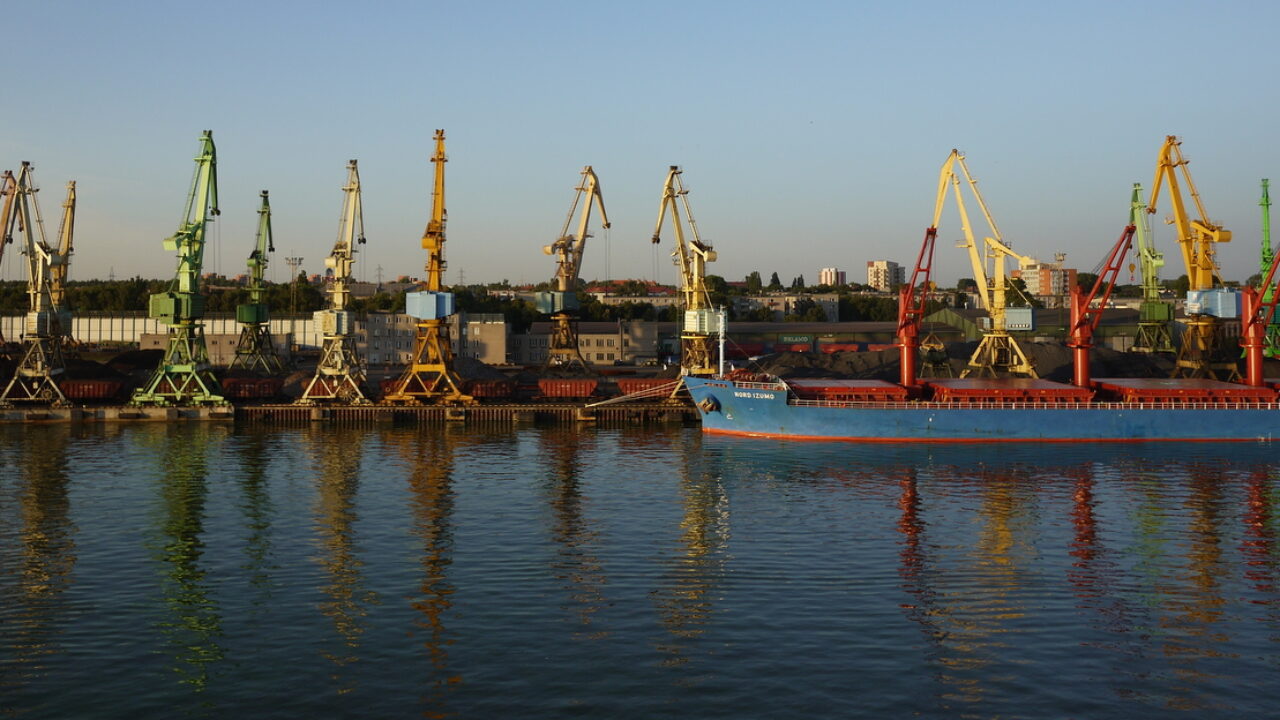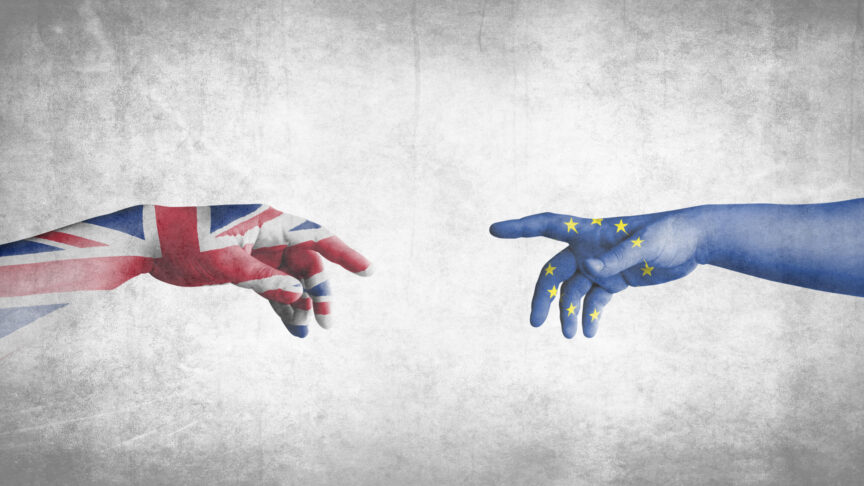Coercion with Chinese characteristics: How Europe should respond to interference in its internal trade
China is pressuring EU companies to cease trading with Lithuanian firms. This is a critical moment for the European Union – it should build up defences for its internal market and protect member states and companies from political coercion
Not too long ago, many Europeans thought it virtually inconceivable that China might use economic tools to place political pressure on them. They certainly would have thought it implausible that China would seek to influence the activities of European companies in third countries. But Beijing has now shown it can, and will, do both. To respond to this challenge, Europeans urgently need to assemble not just one tool, but a more comprehensive toolbox.
China’s recent treatment of Lithuania provides the sharpest illustration yet of what it is prepared to do. Relations between Lithuania and China have been souring for some time, starting with the Baltic state’s withdrawal in May 2021 from China’s 17+1 cooperation format with central and eastern European states. When in the same month Vilnius accepted the opening of a “Taiwan Representative Office” (and not a “Taipei Office” as with other European states), Beijing initially deployed diplomatic tools to express its displeasure. It recalled its ambassador, to send a reminder that it views Taiwan as part of China and Lithuania’s actions as an attack on its sovereignty and territorial integrity.
When Vilnius did not bow to this, China ratcheted up the pressure. It is now using economic coercion against an EU member state and against companies from across Europe. To begin with, it imposed trade curbs: starting last summer, it stopped direct freight trains to Lithuania and blocked the import of Lithuanian agricultural products. Then, when this too bore no fruit, Beijing removed the country from the Chinese customs clearance system, which has the effect of introducing a de facto ban on all Lithuanian imports. As is so often the case with China’s approach, this was done with no official announcement: Lithuania simply ‘disappeared’ from the system (and has, at times, even reappeared in it).
And now China has decided to go beyond trade with Lithuania, and has begun targeting non-Chinese and non-Lithuanian companies in a concerted effort to increase the pressure. News recently broke that China is pressuring multinationals such as German company Continental to stop trading with Lithuanian firms and cease using its own factories in the country – or face losing market access in China.
China has a long tradition of imposing “sanctions with Chinese characteristics” – informal pressure that is hard to detect or difficult to link to the state (such as ‘popular boycotts’) rather than overt and formal sanctions. In the case of Lithuania, too, no European companies find themselves on sanctions lists, but are simply being told that they could lose access to the Chinese market, or that goods that include “Lithuanian content” could be stopped at the border. But the effect is much the same as with sanctions: non-Lithuanian companies change their behaviour according to Chinese desires. This has already begun. Facing a potential loss of access to the big Chinese market, German companies are currently urging the Lithuanian government to change course, and some European firms have reportedly stopped trading with Lithuania.
Herein lies the key concern with this situation. China has started to impose secondary sanctions on Europeans (albeit informally). It is weaponising access to its market to force unrelated third companies to cease trading with firms from another EU member state. This constitutes interference with intra-European trade and the EU’s internal market. It should be a source of great worry for European businesses and governments.
If its market continues to grow in importance for companies and states around the world, China will gain an ever-stronger position from which to use secondary measures to influence European trade with unrelated third countries
In the past, Europeans have been extremely concerned about extraterritorial and secondary sanctions from the United States. Under then-president Donald Trump, Washington used such sanctions to threaten companies, including European ones, with a loss of access to the US market. This included banks, which could not afford to lose access to the US if they helped companies trade with Iran or with NATO ally Turkey (although the measures on the latter were never implemented). Some of these sanctions are still in place but, under President Joe Biden, this is merely because negotiations with Iran have not concluded yet. Faced with that choice, most companies withdrew from such trade. Of course, the US has a much more extensive reach than China, as essentially every bank in the world needs access to US dollar markets. But China’s reach is still impressive, and China is a systemic rival – which makes it much more likely to impose informal measures in times of conflict. If its market continues to grow in importance for companies and states around the world, China will gain an ever-stronger position from which to use secondary measures to influence European trade with unrelated third countries. The Chinese renminbi will not match the power of the US dollar – for a long time, at least – but the Chinese market or key new technology from China could become so central for European businesses and key European industries that they will be increasingly susceptible to Chinese secondary measures.
Moreover, if China is willing and able to threaten European companies over a country it has political disagreements with – in this case, Lithuania – it is easy to imagine it doing the same to curb European trade with Taiwan, or another country whose political relations with China suddenly deteriorate. In the future, then, European companies could find themselves subject to Chinese pressure for trading with, say, South Korea, should there be a dispute between Beijing and Seoul.
What the EU can do
The European Union has several ways to respond to economic coercion, some of which are more advanced in their development than others. It needs to accelerate this development.
A new anti-coercion instrument
The Lithuania situation is a strong reminder that the EU requires an economic deterrent that would allow it to rapidly impose possibly heavy countermeasures in cases of grave economic coercion. The particulars of the Lithuania case notwithstanding, the current situation is key to Europeans’ understanding of economic coercion, their response to it, and the backdrop against which the EU’s anti-coercion instrument would have to operate. Several key points on this instrument are worth noting.
The first of these concerns solidarity. The Lithuania case is complicated for several reasons. Vilnius acted without coordinating with its EU partners on a major question of foreign policy (relations with Taiwan), which at least in principle begs the question of whether it should now be able to count on EU solidarity. Solidarity presupposes responsibility, no doubt – but Europeans should also bear in mind that smart economic coercion is, almost by definition, that which successfully divides the EU. A coercive third country will do everything it can to prevent the 27 EU member states from unifying against it.
This suggests that, in determining a response, Europeans should not only weigh the substance of the policy matter, but also the gravity of economic coercion waged against one member state: there needs to be a line beyond which the EU shows its solidarity with the member state concerned, even if many in the EU originally did not agree with the member state’s policy that triggered the coercion. This is because deterring the use of certain measures by third countries – for example, dire economic threats against state officials or efforts to cut an EU member state off from intra-European or broader trade – is more important as a principled stance than worries about moral hazard.
That being said, the EU would set a dangerous precedent if it demanded automatic solidarity that involves economic cost for other EU member states regardless of whether there was prior coordination on the policy that prompted the coercion. That could encourage actors such as China and Russia to convince one member state (using positive or negative incentives) to take a certain policy stance that would then change the entire EU’s stance on a given subject.
A reformed Blocking Statute fit for the China challenge
China’s actions against Lithuania are also a forceful reminder that the EU needs to reform its Blocking Statute – which is meant to provide a defence against secondary measures – and adapt it to the growing China challenge. Currently, the statute is largely ineffective, but the EU has launched a reform process. A new statute could allow the EU to maintain that compliance with the coercer’s secondary measures, including China’s, is illegal in principle. But the new statute could also ease the situation for European companies through easier waiver procedures, in exchange for providing more information to the authorities. It should also include the option of responding with targeted countermeasures against companies based in third countries.
Construction of a broader EU resilience architecture
The nature of Chinese economic coercion is such that it leaves almost no paper trail. Had it not been for journalistic research, the EU may not have known that China was applying pressure on companies to stop trading with Lithuania. To get on top of this, the EU needs to establish an EU Resilience Office. Its responsibilities would include working to understand (and then respond to) grey-zone coercion, “popular boycotts”, and other informal measures. When it is not necessarily clear what China is doing, it is vital to have the means to find out. The EU Resilience Office would document these various forms of pressure, provide strategic assessments of what is taking place, and bring together all staff working on these issues. The office could come in the form of a high-level strategic unit working across European Commission directorates-general. Such a resilience architecture could also channel financial assistance to companies that have been hit hard by coercive measures. In the short term, at least, this could give some of them time to adapt to the changed situation.
While some policymakers query whether Lithuania should have acted unilaterally in some of its recent decisions, it remains the case that Europeans cannot stand by and watch as economic coercion cuts off a member state from part of its intra-European trade. Such coercion is at its most effective when it successfully divides Europeans. The EU now needs to unite around creating its geo-economic toolbox.
The European Council on Foreign Relations does not take collective positions. ECFR publications only represent the views of their individual authors.



